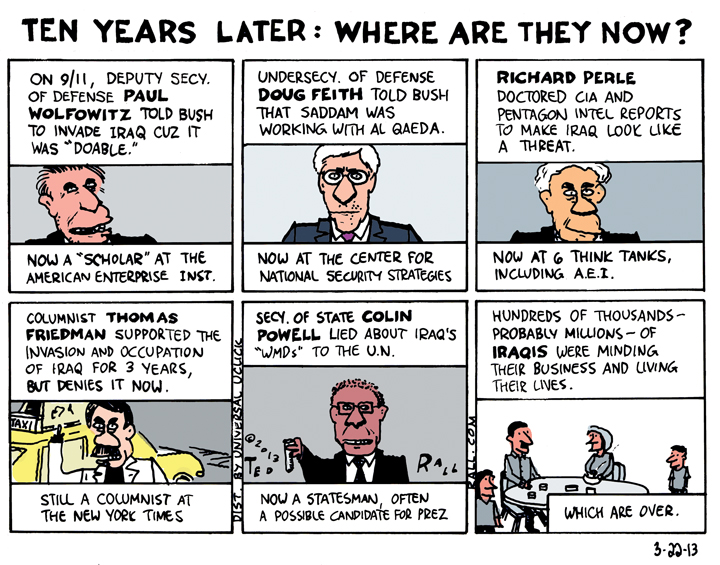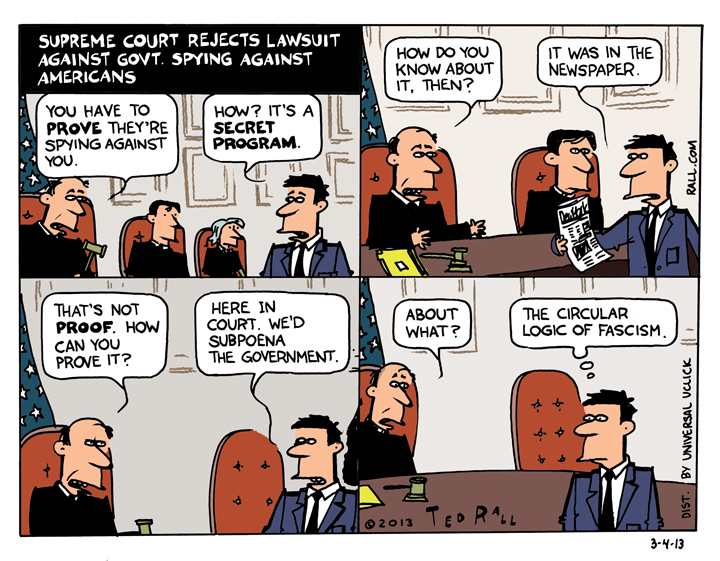Silicon Valley worries that NSA spying is hurting American tech companies’ ability to compete internationally. Who wants to store their data here when they know it’s going to be spied upon? But the post-9/11 police state indirectly employs millions of Americans. What’s more valuable to the U.S. economy — the security surveillance sector, or IT? The answer may or may not surprise you…but it will bum you out:
But then I began thinking about the vast scale of the post-9/11 police state. Tens of thousands of employees. Hundreds of thousands of private contractors. Many of them, like former CIA contractor Snowden, paid six-figure salaries. That huge data farm in Utah. That’s a lot of economic activity. For the moment, let’s set aside the moral and political ramifications of law-breaking citizens (the NSA’s charter prohibits both intentional and accidental data collection in the United States) who spy on law-abiding citizens. As a simple matter of short-term cost-benefit analysis, what’s better for the American economy: privacy or police state?
This essay is exclusively at ANewDomain.net. Please check it out and spread the word.





